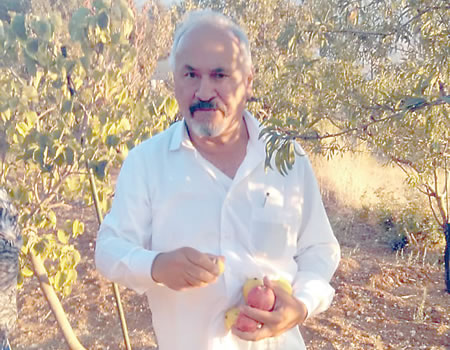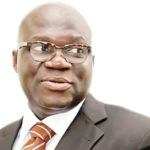WHAT’S the genesis of the Study Abroad In Lebanon (SAIL) programme?
The genesis of the Study Abroad In Lebanon (SAIL) program is also the beginning of my friendship with Professor Edward Alam [the second major course instructor]. We met accidentally. My niece was a student of Notre Dame University (NDU), and at the time I was a full-time tenured faculty at the University of Michigan, United States. After earning my tenure in Winter 2000, I began to visit Lebanon every summer. So, during that summer in 2000, my niece told me, ‘Uncle, I know this Jesuit priest, Father Martin McDermott, and there’s a party for him. Do you want to come?” I said of course I would.
So, we went to the party in honour of Father McDermott, and while we were there, my niece saw Dr Alam. She knew him because he was her teacher at NDU. She introduced us. Dr Alam, at the time, was the Director of International Relations at NDU. I was Director of the International and Global Studies Program at The University of Michigan—Flint (UM-F), so my position was both academic and administrative. His job was administrative, but he also had an academic position. We met and hit it off well.
I said why not build a relationship between our institutions? Why not set up a study abroad program by bringing American students to Lebanon and have them take a world history course that we would both teach, and we would get both our institutions, NDU and UM-F, involved. It was a grand idea. Next time when Dr.Alam came to the US, I met him, and we brainstormed the idea and agreed on the logistics. He went back to Lebanon, we exchanged emails, then we got the Memorandum of Understanding ready, and the UM-F Provost at the time, Dr. Renata McLaughlin, signed it. That was sometimes in Spring 2001.
By that time, I already got my tenure and was interested in building ties with Lebanon. I travelled again to Lebanon during summer 2001. What happened when I went back to the US? 9/11 happened! We suspended the programme because the University of Michigan is a public university; the flagship university of the state of Michigan. It’s a research university and gets funding from the federal, and the state of Michigan, governments. As a result of 9/11, the Federal Government issued a warning stating that travel to Lebanon is no longer advised. I think a Lebanese was among the terrorists and they immediately put Lebanon on the list of countries Americans were urged not to travel to. Given that my university followed the policy of the State Department, we couldn’t proceed with the Study Abroad. It was scrapped.
How I got to meet Professor Soyinka was through Dr Ernest Emenyonu, who is considered one of the foremost professors of African Literature. He’s a close friend of Prof Soyinka. He brought him to the University of Michigan, I think, in 2003 or 2004 and as a result I got to meet him. After that, in 2003, I took a sabbatical. But instead of making it for a half year, I took a full year at half pay. I decided to come to Lebanon and got a position as a full-time faculty at NDU through the good auspices of Dr Alam, who was still director of International Relations I became involved with him, and I set up the idea of having a Study Abroad In Lebanon: World History through the Eyes of Lebanon, and not only in the field of World History but also Literature and many other fields of study. I built the whole programme around it. Then, what happened? Dr Alam, for one reason or another, had a big difference with the administration and he resigned his position. So, we really couldn’t implement this new Study Abroad: World History through the Eyes of Lebanon.
I left in 2005 and returned to the US. Dr Alam was no longer involved. I went back to Michigan and was planning to make a final move to Lebanon, at that time. Fast forward to 2011, I resigned my tenured position at the University of Michigan and returned to Lebanon for family reasons. By 2012, Dr Alam, myself and faculties from other universities established The Cedars Institute as a legal NGO. Since then, Dr Alam and I have been working closely to bring scholars, students, faculty from all over the world to the Cedars Institute, supporting students who are conducting research. We support students who focus primarily on three areas: Environment, Migration, and Religion.
Then, we began the Study Abroad In Lebanon, and our first group came from Brazil in 2015. Our goal is to make the programme permanent. So, we had to find funding for it and we got that through other institutions: a major university in Sao Paolo, academics in Brazil, and different people who supported the programme. The University supported in kind. Like now, your stay here is sponsored by the University. Your stay at the Cedars Institute is supported by the Cedars Institute. Your travel to Lebanon is supported by Dr. Habib Jaafar and The Wole Soyinka Foundation, and other donors. Everyone contributes something to make your study in Lebanon possible.
Our goal, though, is to make the programme permanent. If we had an endowment, let’s say of a million dollars, that is raised from both Nigerian and Lebanese businesspeople, and they invest it in a reputable, transparent institution in Nigeria, they’ll get about a 10 per cent return on investment, they re-invest five per cent and have five per cent left, or about $50,000. This sum will then be used to fund the Study Abroad In Lebanon Programme. So, funding the programme becomes automatic. Every year the money is ready, all you have to do is select the students. And we leave that, of course, through the Wole Soyinka Foundation because it all started in 2014 when Professor Soyinka came to Lebanon.
After the Nobel Laureate’s visit to Lebanon,we brainstormed how to build cultural relations between Nigeria and Lebanon. We strongly believed that the relationship should go beyond just business, that it should be cultural and educational. Our first Nigerian group came in 2016, the second in 2017. You are the third Nigerian group participating in the Study Abroad program. Our goal, as I said earlier, is to make this program permanent and its financing automatic through an endowment that Dr Habib Jafar and his associates are working on with the cooperation of The Wole Soyinka Foundation.
Are you happy with how the programme has fared so far?
For us, the key criteria that tells us if what we’re doing is good, is the impact on the students. That is our most important indicator; not what we think. Of course, we believe we are trying to give the best possible programme within the constraints we have, in terms of time or financing, but ultimately, who decides how good this program is are the students. The impact we get from the students at the end, and the follow-up. I give you an example. Dr Alam and I went to Brazil this May, and we met some of the students who participated in the SAIL program. And they were saying, “you don’t know, this changed our lives. I wish I could come and work in Lebanon. What are the possibilities; maybe get a postdoc?”
It’s incredible when you get that sort of responses. That means you’re doing something right. And we got the same from the Nigerian group; the first group. And we got the same from the Ukrainian group. The Ukrainian group was very different because it was composed of senior, established scholars. We have a group coming at the end of October from Brazil. We tailor the programme to the interests of each group though there are basic topics and sites that we cover in all the programs. We have another SAIL in the works, and it’s going to be on The Shia in World History. For this edition, we are working with universities in Iran, Lebanon and Germany.






